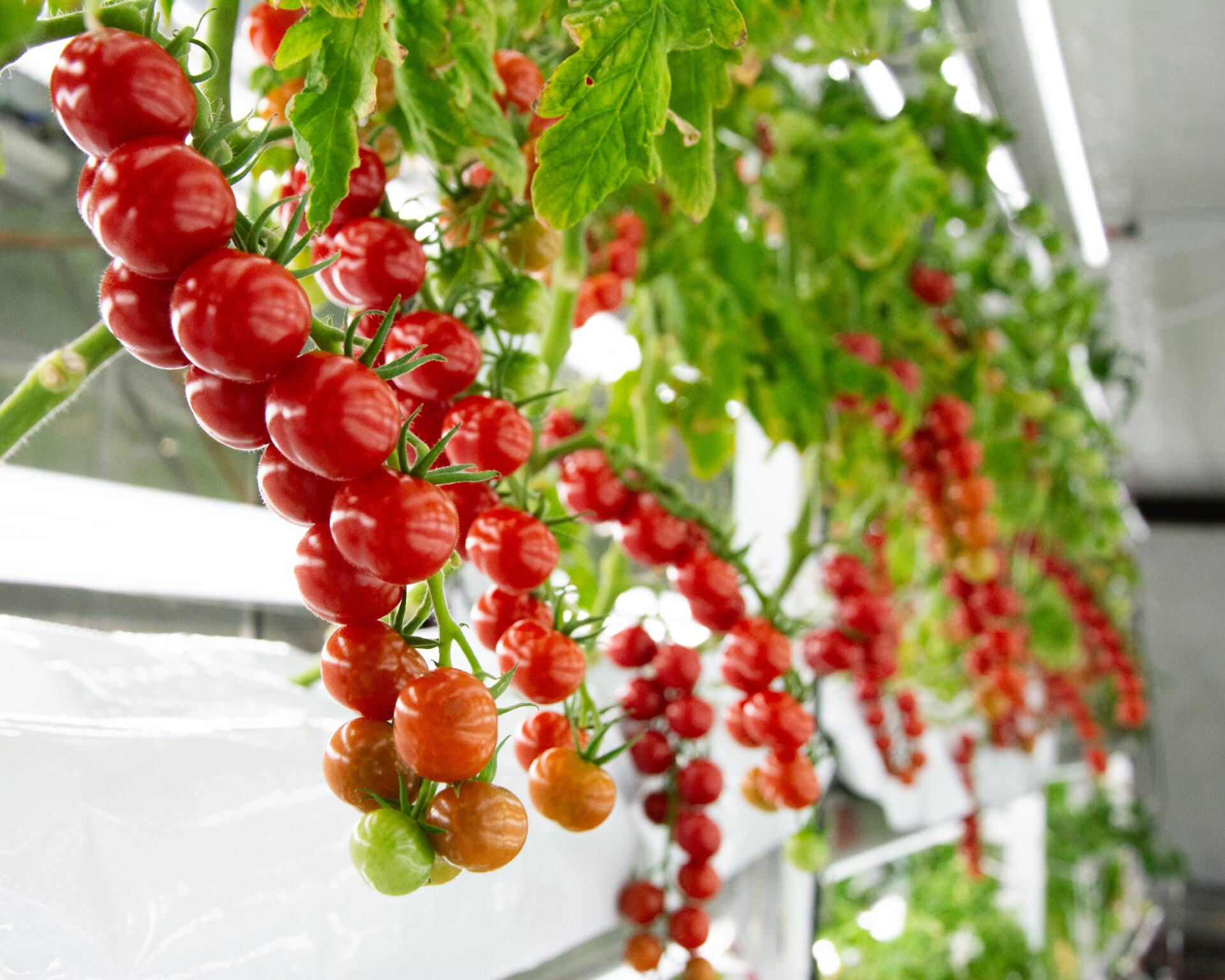- Vertical farming company Oishii has launched its latest product, the Rubī Tomato, in select Whole Foods stores in the US.
- The company is growing the tomatoes, which are from a Japanese varietal known as a “fruit tomato,” at its indoor vertical farm outside of New York City.
- This is Oishii’s third product to reach the consumer market and its first non-tomato produce.
- Oishii is also expanding availability of its products across the Northeastern US for the first time.

Why it matters
Like Oishii’s Omakase Berry, released in 2018, and the Koyo Berry added to the line up this year, the Rubī Tomato is a premium product; trays of 11 now retail at Whole Foods in Jersey City for $9.99 each.
“The Rubī is the sweetest tomato you will ever taste and builds on what we started with our delicious strawberries: we’re on a mission to redefine how we experience fresh fruit,” says Oishii co-founder Hiroki Koga.
According to the news release, the Rubī is a “jewel-like tomato has a bright red, shiny, delicate skin that encases its juicy center bursting with flavor.”
Given the indoor crop ag sector’s ongoing market correction, it may at first seem like an odd time to launch an ultra-premium product grown in a vertical farm.
However, Koga and Oishii hold to vertical farming as “the future of agriculture.”
“But this technology will only take root if we can grow complex fruits and vegetables – like strawberries and tomatoes – efficiently and at scale,” adds Koga.
In his own words, Oishii “hasn’t spent a dime” on growing leafy greens in its vertical farms.
“I learned things the hard way looking at a lot of Japanese companies struggle by starting with leafy greens,” Koga, a native of Japan, told AgFunderNews earlier this year.
One big differentiator for Oishii when it comes to strawberries, tomatoes and other flowering produce is its pollination system. Oishii uses AI, data and visual recognition to monitor its farms and automate the pollination process. While the company keeps the exact technical details under wraps, Koga reported earlier this year that his company is aiming for at least a 90% success rate with pollination in its farm, which is the only way unit economics for vertical farming will make sense.
The Rubī’s debut comes as Oishii plans to expand availability of its products across the Northeastern US. Currently, the Koyo Berry has increased supply to Whole Foods stores by 600% and “is on track to double again by January 2024,” according to the news release.
Oishii is currently in development for new types of flowering produce.




